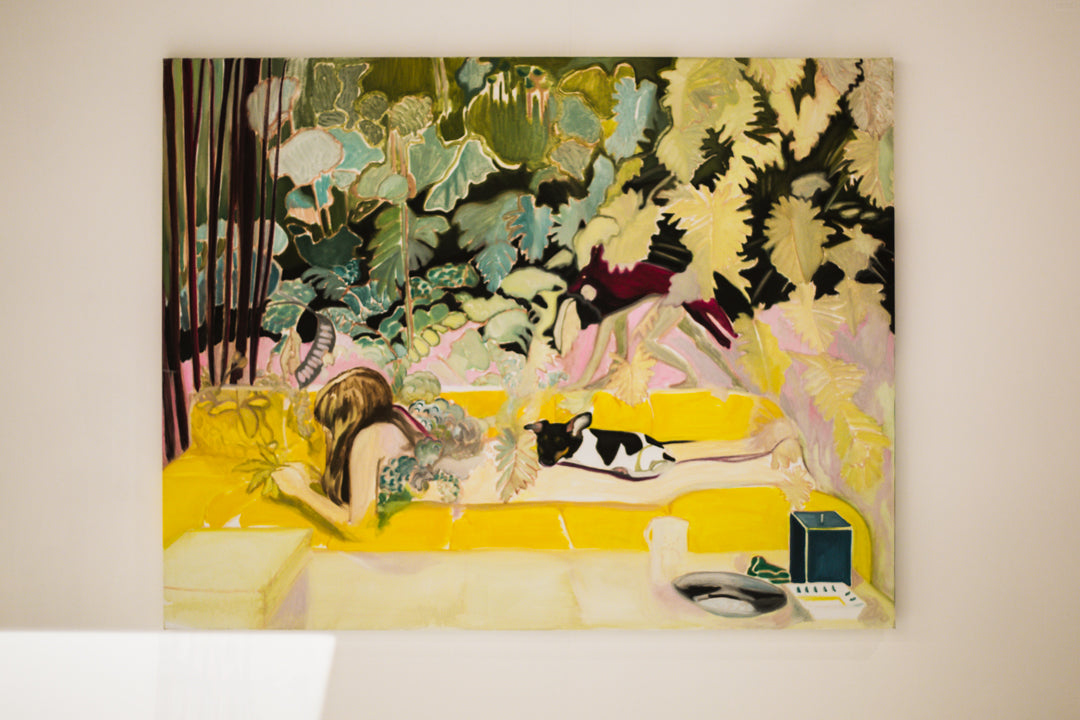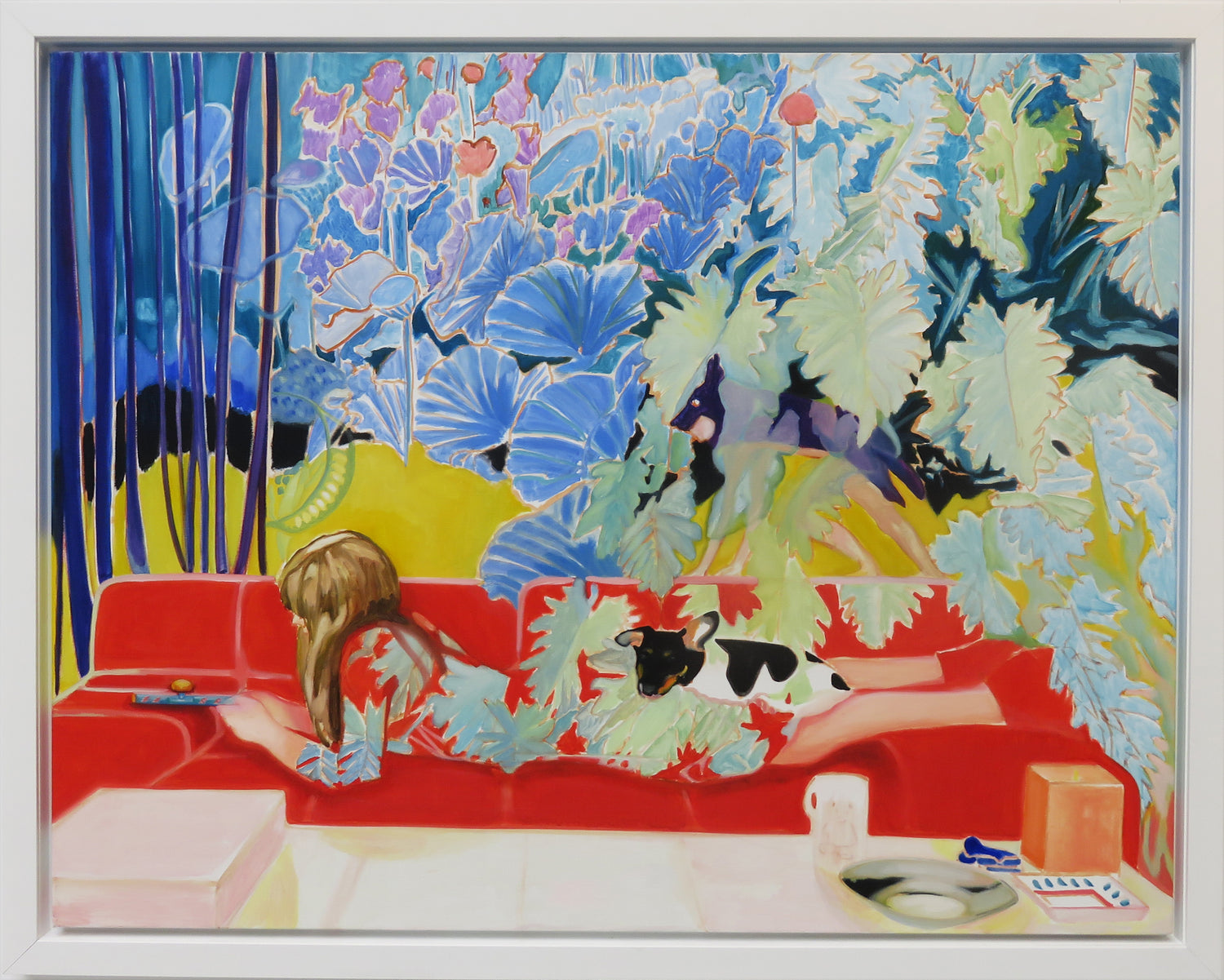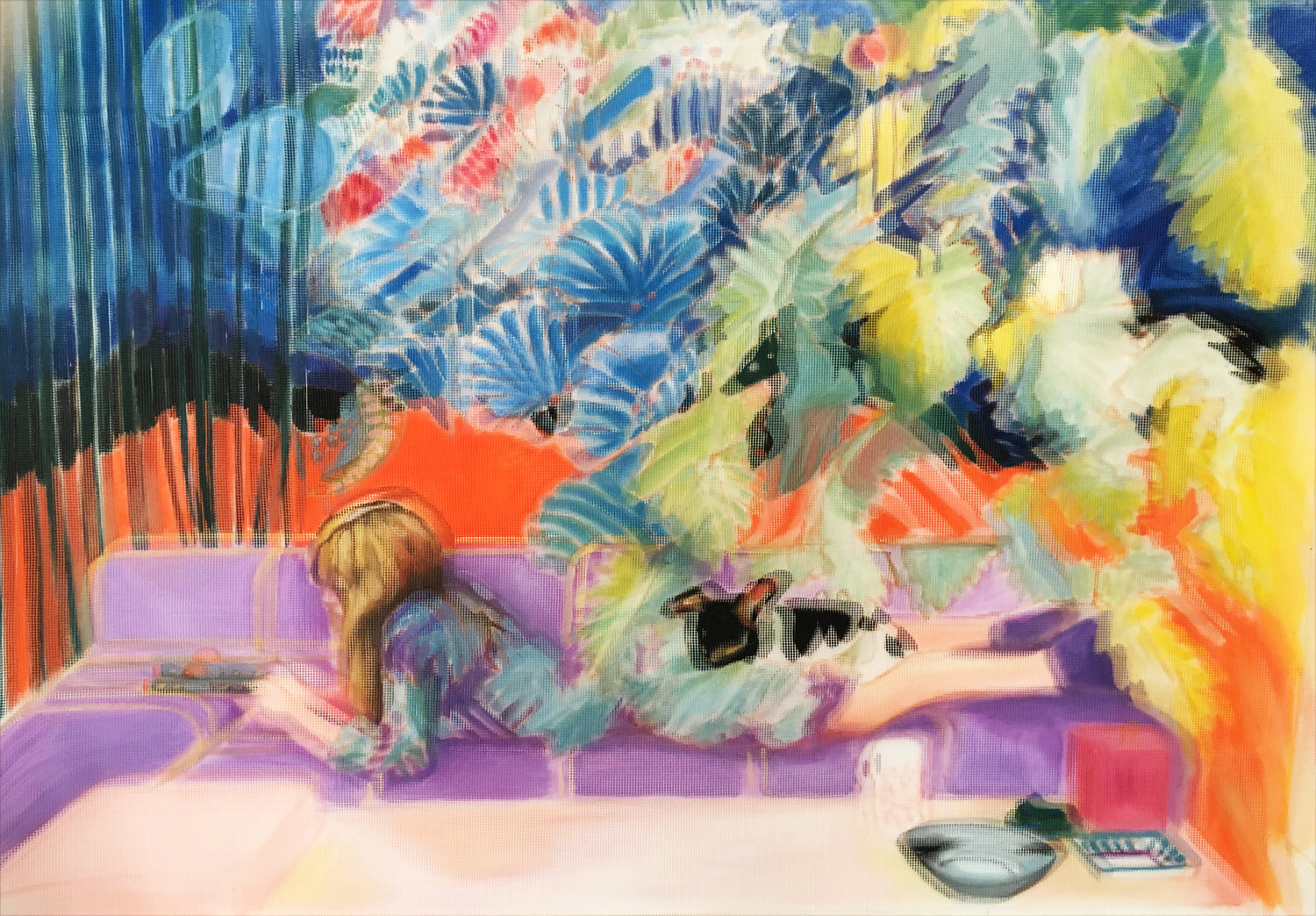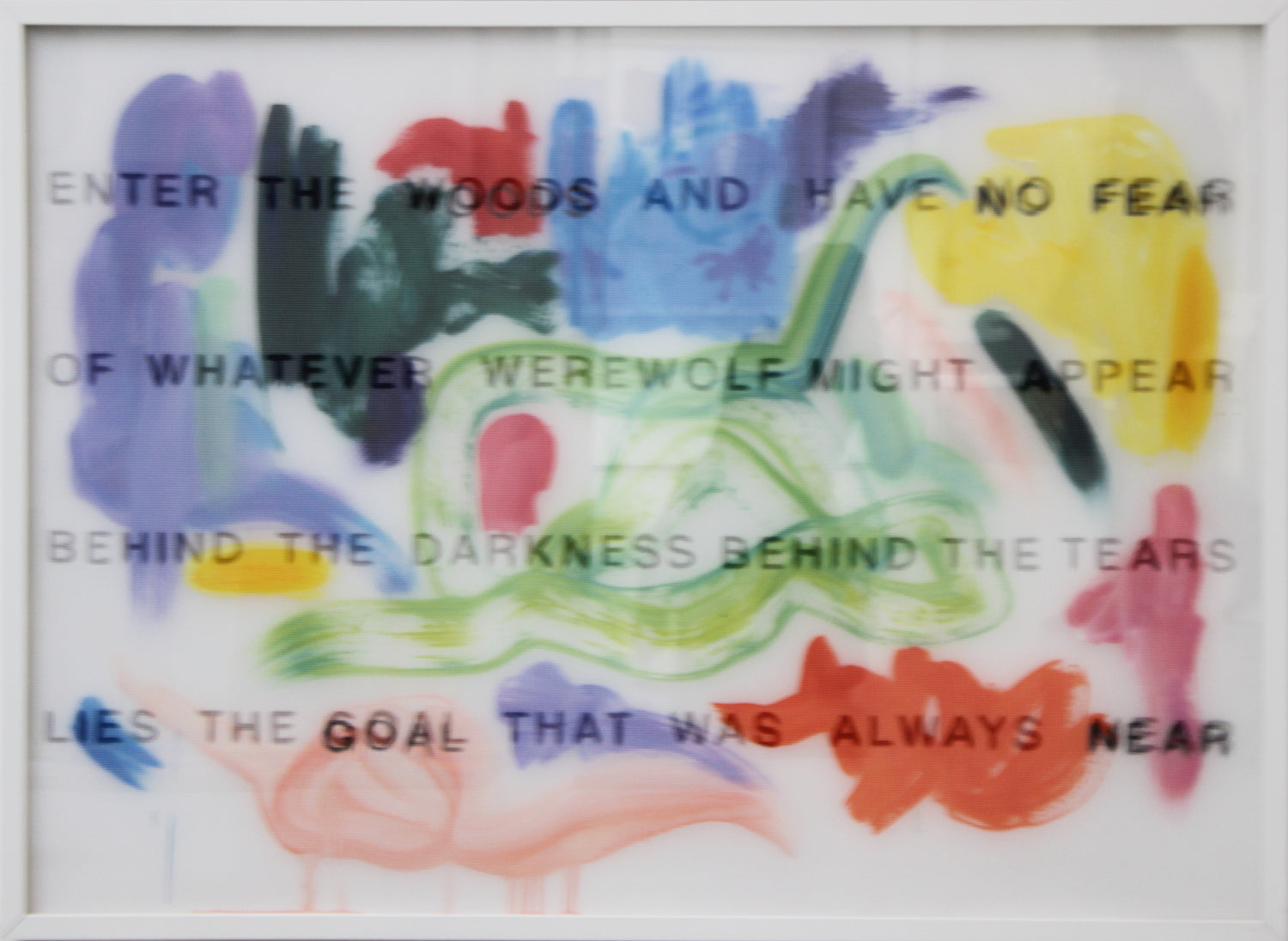The Lycanthrope
Clarissa Pinkola Estes is a psychoanalyst and storyteller. She explains in her book Women Who Run With The Wolves, through storytelling, myths and legends, that women have a natural, instinctive force, rich in creative gifts and of an immemorial knowledge. She describes the way in which societies bury this wild woman who exists in all of us. Unlike Red Riding Hood, she tells us to go into the woods, to see the wolf, not to fear while not being completely oblivious, in order to find within ourselves this part of ransacked nature. The poem which is attached to it describes this need for self-discovery and translates the feeling which I had while reading this book. A lycanthrope hides in the leaves watching this young girl, who cares for nothing protected by her dog and holding in her hand as a call to relax, to let go, to dreams, a pipe of opium or a leaf of cannabis. A tribute, also to Goya and his Maja Vestida and Desnuda. One of the young girls is naked, becoming one with the nature that surrounds her, the other, dressed, blends in with the print of her dress and the colour of the sofa.









